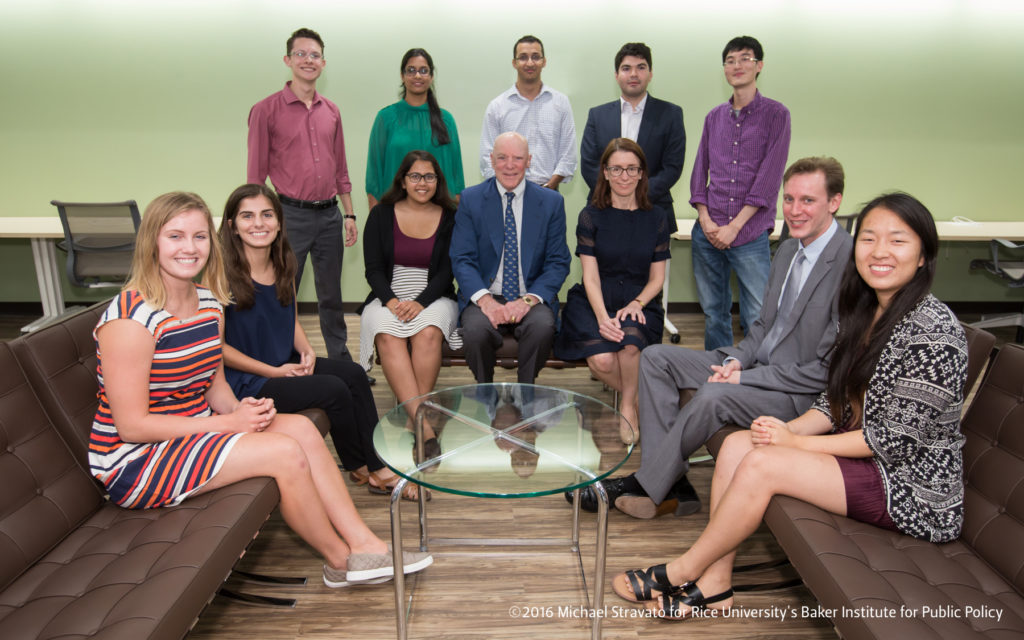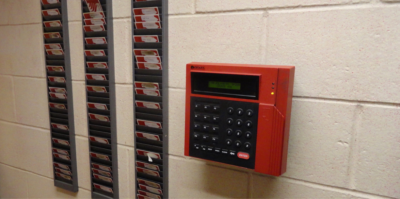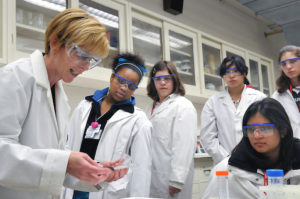
About the Center
The McNair Center for Entrepreneurship and Innovation at Rice University’s Baker Institute for Public Policy was founded in 2015 with an $8 million gift from the Robert and Janice McNair Foundation. Dr. Edward J. Egan was chosen as the founding director. He designed the center to provide policymakers, scholars, and the general public with comprehensive analyses of the issues that affect entrepreneurship and innovation at three levels: federal and state policy, municipal ecosystems, and academic entrepreneurship and innovation.
The Center’s foci were naturally on the U.S., Texas, Houston, and Rice University, but it also drew and shared insights from the best practices and policies worldwide. Its philosophy was to combine grounded theory and data-driven causal design to produce peer-reviewed research that stands up to scrutiny. To this end, the center collected and disseminated data, provided open access to informational resources, collaborated with leading academic experts, built understanding, and recommended policy to harness the incredible power of entrepreneurship and innovation.
By 2018, the McNair Center had provided more than 70 undergraduate and graduate students with internships to develop policy research, had a staff of four, and was the largest social science research laboratory on the Rice University Campus. It received offers of an additional $6.2m in funding to hire three more fellows and two more staff members and to roll out its nationwide research affiliate program.
Student Articles
Some of the best articles written by students at the McNair Center for Entrepreneurship and Innovation at Rice University’s Baker Institute are below. The full collection of McNair Center articles is archived for future generations of entrepreneurship and innovation policy researchers.
Gateway to Entrepreneurship: St. Louis
You probably know St. Louis as the Gateway to the West, but the city is emerging as a strong entrepreneurial ecosystem. For decades, St. Louis followed the economic development model of attracting and keeping large out-of-town companies with generous tax breaks and subsidies. In the 1990’s, political and business leaders became frustrated with the slow…
Small Business and Overtime Regulation
Clocking in: Small Business and Overtime Regulation What is the New Overtime Regulation? On December 1, 2016, the Labor Department will officially institute new regulations on overtime eligibility for workers. Announced on May 17, the new rules require business owners to pay salary workers earning up to $47,476 a year time-and-a-half overtime pay when they work more…
Entrepreneurship for All: Washington D.C.
Washington, D.C. is known for its politicians and bureaucrats, but it’s also where the top-20 U.S. government contractors are based. In recent decades, high-tech, high-growth entrepreneurship has been on the rise in the U.S. capital. Startup ventures, coupled with a diverse economy, largely fueled by the federal government, have led D.C. to emerge as a strong entrepreneurial ecosystem. History of…
Big Problems for Small Practices
Big Problems for Small Practices: Examining the Effect of the Affordable Care Act on Entrepreneurship in the Healthcare Field The doctor-patient relationship is an important aspect of healthcare. Small physician practices, offices with no more than a couple doctors, have been the long-standing foundation of this relationship. Unfortunately, legislative changes disincentivize doctors from being small…
Women in STEM: Closing the Gap
Economists around the world emphasize the benefits of integrating more women into the workforce. While we are seeing slow growth in women’s presence in many sectors, the Science, Technology, Engineering, and Math (STEM) fields at the core of innovation seem to be especially lacking in girl power. In 2014, women comprised approximately 47 percent of…
Visit the Research Wiki
The other side of this website hosts a Semantic MediaWiki-based collaboration platform, which provides a development environment, documentation, and content, for economic research. Previous incarnations of this wiki supported my colleagues at U.C. Berkeley, the NBER patent data project, the McNair Center, the Kauffman Incubator Project, and research done by some affiliated economists. It is now (largely) open to the public, and may be of interest to economists, other social scientists, computer scientists, and data scientists, as well as some finance professionals. It has almost 3,000 pages of content, developed by about a hundred team members, including the background material for many of the articles archived on this site.


Research
Become an affiliate and develop academic research using the wiki, or view hundreds of summaries of research articles and U.S. federal legislation.

Library
Discover thousands of pages of information about everything from our research computing infrastructure to the economics of true love.





